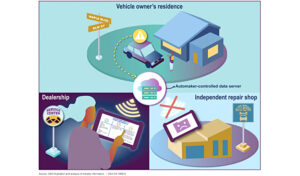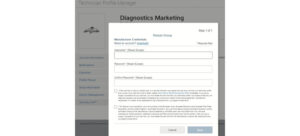The electric vehicle price war has begun, as both Tesla Inc. and Ford Motor Co. have slashed prices this year to make their cars more affordable
Washington, D.C.—The electric vehicle price war has begun, as both Tesla Inc. and Ford Motor Co. have slashed prices this year to make their cars more affordable — and, more importantly, eligible for a $7,500 tax credit from the federal government, which was recently expanded to include more crossover sport-utility vehicles.
Almost 3 in 5 U.S. adults support federal EV subsidies, and just about half the public says that the ability to apply for a tax credit makes it more likely to consider purchasing an EV in the future, according to a new Morning Consult survey.
EV subsidies draw most attention from Democrats, while Republicans are more split
Democrats (74%) and climate-concerned adults (70%) were most likely to back EV subsidies. Those groups were also more likely to consider purchasing an EV if they were able to apply for a tax credit, with 62% of Democrats and 58% of climate-concerned adults saying so.
Republicans were mostly split between saying that the ability to apply for a tax credit would make them more likely to consider purchasing an electric vehicle (38%) or would make no difference at all (40%). The group was also split in its support for EV tax credits, with 41% in favor and 38% opposed to the subsidies.
Around half of adults living in urban and suburban areas were more likely to purchase an EV if they could apply for a tax credit, while the share of adults living in rural areas who said the same was 38%. Within rural communities, almost half (47%) support the EV tax credits, while backing for the subsidies was even higher among adults living in urban (64%) and suburban (60%) areas.
Almost Half of U.S. Adults Say Tax Credits Make Them More Likely to Purchase an EV
Respondents who said the ability to apply for an electric vehicle tax credit makes them more or less likely, or makes no difference at all, when thinking about purchasing an EV.
Tax credits remain a point of contention in Congress amid delay in subsidy implementation
While automakers focus on pricing, lawmakers like Sen. Joe Manchin are more concerned about domestic battery sourcing, a major sticking point for the Democrat from West Virginia during last year’s Inflation Reduction Act negotiations that ultimately aimed to boost the supply chain in the United States and shift reliance away from China.
In late December, the Treasury Department said it would delay issuing proposed guidance on battery sourcing rules until March, opening a window of eligibility for buyers to purchase EVs with up to $7,500 in a tax credit before those sourcing rules kicked in. The guidance had been expected by Dec. 31.
Manchin is seeking to close that window with a measure to make all requirements retroactive to Jan. 1, which could mean that buyers would have to pay back their tax credit if their purchase didn’t meet the sourcing standards.
Sen. Debbie Stabenow (D-Mich.) shut down the attempt to pass the measure by unanimous consent, adding that automakers need more time to meet those requirements and that it was “not unreasonable” that the Treasury needed more time to sift through the complex consumer tax credit.
Survey conducted Jan. 5-6, 2023, among a representative sample of 2,777 U.S. adults, with an unweighted margin of error of +/-2 percentage points. Figures may not add up to 100% due to rounding.





Comments are closed.